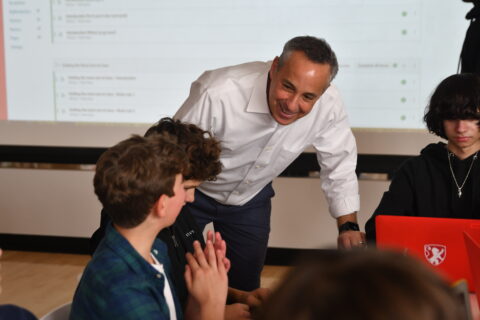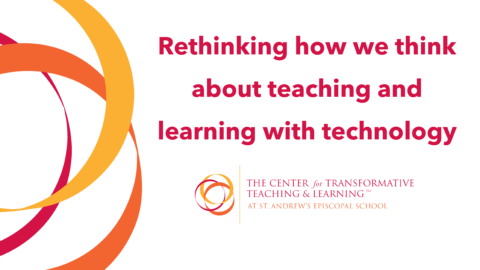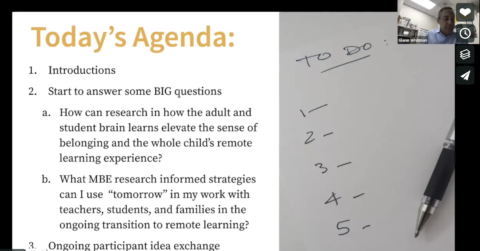By Dr. David Daniel and Glenn Whitman
A parent or guardian is a child’s first teacher. First sounds, first words, first letters, first numbers, first books and read alouds are foundational to a child’s development at a time when the brain is experiencing one of its most sensitive periods of neural development. When a child enters school, the parent gains an important partner in the academic development of their child.
COVID-19 brought school into the home and thrust parents into unfamiliar roles of supporting their children during the school day while at the same time trying to juggle their professional and personal obligations, a task that is exponentially harder the younger the child or children.
The new school year is possibly more complex and uncertain. Once again, parents, caregivers, and guardians will be called on to support their child learner. We are sometimes asked what research-informed strategies should a parent know to best support a child, whether in this time of COVID-19 or when we return to a reliable in-school experience.
What are we trying to accomplish?
A major goal of education is teaching students how to learn, not just get answers. In fact, developing scaffolded and productive situations and lessons that encourage the student to figure things out is a major goal for many lessons, especially important in the younger grades. The goal in these lessons is not getting the answer correct so much as learning how to get to the answer. Just as comedians need laughter to know if their jokes are effective, teachers use answers to check thinking.
This process of thinking through a problem and/or struggling a bit to figure out how to solve it is often called grappling. Grappling with a problem is a life-long skill and at the core of much learning and problem-solving in educational, professional, and personal contexts. We want to encourage a student to learn to work through issues that are difficult in the moment (knowing that things get easier as you get better), rather than avoiding or rushing toward a satisfying but erroneous response.
It is difficult, even distressing, for many parents to see their child struggling to construct what the parent considers to be an easy answer. Some parents even report feeling embarrassed. So, the parent’s goal sometimes becomes helping the child (or themselves) feel better, rather than allowing the child to learn to figure things out for themselves, which is the goal of many educators.
In fact, many teachers report that parents unwittingly subvert the grappling process by working too hard for their child to get to the answer quickly, often even telling their child the answer. This may help their child to get the answer more quickly, but providing answers or too many hints via leading questions does not help a child achieve the primary goal: learning how to think and learn. As professor Rob Coe is often quoted as saying, “learning happens when students think hard.” And, quite often, thinking hard is hard.
Supporting learning to learn
To support high quality education, parents need to become comfortable with their child struggling and support their child in the process of grappling so that it is productive, and not seen as something to be avoided in the future.
Here are a few tips for parents (and teachers) that can support learning how to learn. Adjust for the age of the child and the problem at hand.
- Show enthusiasm for progress in trying to find the answer. “This looks fun, let’s figure it out,” or “Look how far you have come, that is really cool. Let’s keep going!”
- Help the child learn how to monitor and evaluate their efforts. For example, statements such as: “That looks interesting. Let’s take a step back and see if it helps you get closer to the answer you are looking for,” or “Neat. Let’s see if that will work before we go much further.”
- Help your child regulate their emotions rather than escape or avoid them. If your child gets frustrated or blocked, help them learn to back off a little and come at things from a different angle without disengaging or giving up. Help them learn to identify when the struggling becomes unproductive and when a strategic break might be a good idea (as long as they come back to it). Be aware that the option for breaks can lead to avoidance or stopping too soon when things get difficult. It is a fine needle to thread! An attuned parent is a wonderful resource to help a child learn how and when to back off or dig in.
- Let your child teach you. Asking your child to teach you how they got to the answer, rather than being the source of the answer yourself, not only reinforces the knowledge they have developed, it also allows the child to see it from a different perspective, and even fine-tune or adjust their thinking to make the process even more accurate and efficient. Teaching it to the parent also provides the parent with non-threatening opportunities to ask questions that deepen and situate the learning, increasing the impact on the child. Lastly, asking your child to show you how to do something or to explain “why” in a supportive and inquisitive fashion helps the child view the parent as a true partner in learning, reduces pressure/anxiety, and makes for a more productive and engaging learning experience.
Do as I say, watch how I do
Importantly, do not forget that your emotional reactions matter. When your child gets frustrated, do not rescue or get frustrated yourself. It is essential to note that children use their parents’ emotional reactions as a guide for their own, especially younger children. For example, the children of parents who are nervous around math problems are much more likely to express anxiety about even simple math problems. It is therefore important for a parent to model hopeful curiosity and constructive determination rather than fear, exasperation, or stubbornness whenever possible. If, like us, certain subjects make you nervous, try not to show it as anxiety. Model curiosity instead. And, remember to use the teacher as your resource as well as your child’s.
Parents can support teachers in many ways, from providing low-distraction environments to making sure the child is actually signed on and ready to learn at the right time. Parents can help a child’s executive function and self-regulation by talking through with their child how they might develop a plan to accomplish and distribute their studying, complete a project, or prepare for the next school day. This can include the ritual of creating a checklist or using a daily printed or online planner or calendar. As best as possible, recognizing the constraints of space and the lives of others, parents can also help children create personalized at-home learning spaces and environments free from distractions. Working with your child to prepare for studying signals to them that learning is a priority and that preparation and optimizing success are valuable activities. A parent’s reactions, responses, and interactions with their child will set the tone and contribute to how and what learning will occur well into the future.
A true partnership
In these times of co-teaching between educator and parent, aligning goals is fundamental for your child’s success and ability to thrive. A good teacher weaves learning how to learn throughout their lessons; they create opportunities to struggle, and provide feedback that makes a student’s struggle productive and their progress a source of pride. As a parent, your role in this process is essential. A thinking, creative, and confident child needs the time, space, and support to learn that they can learn. The look on your child’s face after they have successfully worked hard and pushed through some frustration toward the answer is one of the joys of both teachers and parents.
Your child has been looking to you for guidance, whether implicitly or explicitly, for as long as you have been together. This is an opportunity to develop a true partnership with your child; as they build confidence, you will witness, in real time, the growth and development of your child in a very dynamic fashion. While admittedly difficult in so many ways, this can be a time that can impact your relationship with your child, and their relationship with learning, for a lifetime.
David B. Daniel, Ph.D., is a professor of psychology at James Madison University. He is an award-winning teacher and scholar who focuses on developing evidence-demonstrated usable knowledge for educational practice and policy. David was the Recipient of the Transforming Education through Neuroscience Award from the Learning & the Brain Society and recognized as one of the top 1% of educational researchers influencing public debate in the US. He is also the founding managing editor of the peer-reviewed journal, Mind, Brain, and Education.
Glenn Whitman (@gwhitmancttl) is a history teacher at St. Andrew’s and the founding director of the Center for Transformative Teaching and Learning. Glenn is the co-author of “Neuroteach: Brain Science and the Future of Education,” and co-designer of Neuroteach Global—a virtual professional development platform for educators that utilizes the science of learning to teach the science of learning.





